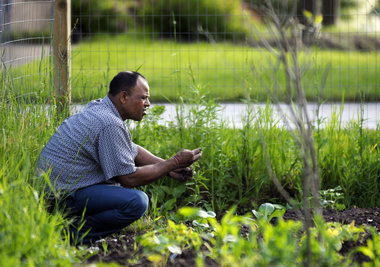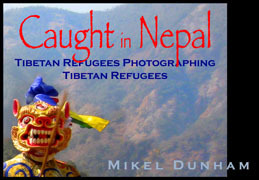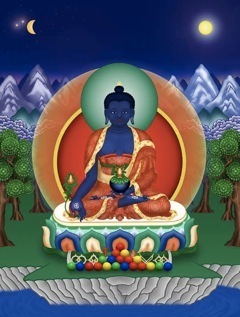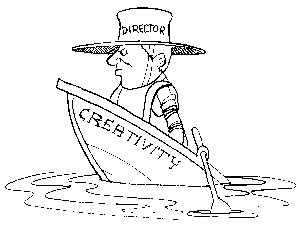Lisa Napoli's Blog, page 44
June 19, 2011
World Refugee Day and refugees from @Bhutan
A flurry of stories today from all manner of local communities that are home to refugees, many of Nepali origin displaced from Bhutan. Saturday was World Refugee Day and the implication of these resettlements is extraordinary.
Lower Paxton Township, Daupin County, PA being one of them….. Cincinnati another, Grand Rapids yet another. I look forward to finding ways to tell this story.
 Darren Breen | The Grand Rapids PressTik Barel, originally from Bhutan, works in his garden plot in the Bhutanese Garden at Holy Cross Episcopal Church.
Darren Breen | The Grand Rapids PressTik Barel, originally from Bhutan, works in his garden plot in the Bhutanese Garden at Holy Cross Episcopal Church.








@Tibetan refugees in @Nepal
A new book project puts cameras in the hands of Tibetan refugees in Nepal and lets them catalogue daily life in exile.
https://files.me.com/demiankz/83ynxg








Traditional @Tibetan @Buddhist Energy Healing and @Yoga @Massage
Saw my Bhutanese friend Lama Jigme Tenzing today at a picnic for a visiting Bhutanese dignitary; if you're in the LA area and this is your thing, check out his services: http://www.tibetanhealingmassage.com
Excerpt:
"In Buddhism it is said:
Until ignorance and craving are removed from the mind-stream,
no matter how healthy we may think we are, we are still ill.
This primordial affliction of contracted awareness is capable of being cured
only through the supreme elixir of spiritual practice.
This Healing is based on restoring the balance between body, speech and mind and removing the impediments to recognizing that balance.
This Medicine Buddha Healing treatment with the combination of Yoga Massage has the power to cure our physical and mental problems or whatever treatable disease we may have. Even if you have no physical or mental problems, just by receiving this healing method regularly it is said that it has the ability to extend one's life, bring peace to the mind and guidance toward success in areas of one's life that are difficult.
A physical problem is any kind of disease or pain in our body.
A mental problem is any kind of energy origination from the mind, or emotions such as anger, worry or fear that cause stress. It also has the power to remove obstacles that prevent you from fulfilling your happiness.
Yoga massage can remove energy blockages in the subtle body/charkas to release tensions and accumulated toxins. Circular stroke is said to charge the body with healing energy. Massage is used to treat a variety of stress-related disorders as well as neuralgia, and pinched nerves.
According to Tibetan Buddhism, before you heal others by this Method, it is mandatory to receive the transmission from a qualified and realized master; and then train yourself well. I received the full transmission from my master, Kalu Rinpoche and trained in this practice during my three year, three month, retreat under the guidance of H.E. Kalu Rinpoche and my other retreat masters.
Afterwards, I worked with these healing methods in Asia, as well as Europe and South America. It truly benefited the people who received this healing treatment from me."








June 15, 2011
Tidbits of the region's media in Himal Southasian Magazine: Bhutanese film and squelching creativity
This column in Himal Southasian Magazinedetail recent wackiness in media regulations throughout the Southeast Asian region, but I'll just post here what was written about Bhutan:
"…. in a bid to preserve culture and promote tradition, the Bhutanese government has asked its filmmakers to stop being creative. Recently, the Bhutan InfoComm and Media Authority (BICMA) outlined a Filming Guidelines and Code of Practice for the Bhutanese movie industry. Among the 11 do's and don'ts, filmmakers can no longer feature characters who speak increasingly popular Dzonglish (Dzongkha interspersed with English words) and wear 'non-national dress' in public. Furthermore, scenes with excessive violence, including depicting rape, are not to be shown. New films will also have to feature at least two bits of 'traditional music', whether it suits the story or not.
Predictably, the Motion Picture Association of Bhutan (MPAB) is unhappy with the new rules, and has asked the BICMA for revisions. In CP's views, though, 'revisions' wouldn't go nearly far enough. Wanting to promote an idyllic Bhutan is one thing, but slaughtering creativity in the name of homogeneity is, quite simply, unforgivable. The rules need to be put in the trash. It's about time that the Bhutanese government realised that the country's much-touted 'happiness index' cannot be larded with imagined happiness……"








Does transition make people happier and healthier?
From the website Positive News in the UK:
Does Transition make people happier and healthier?
Surveys show that the proportion of people describing themselves as 'very happy' has fallen in the last fifty years, while levels of depression have risen significantly.
One factor causing this situation is how many people in the developed world now live isolated from the people around them.
While we might have lots of Facebook friends, many of us do not know much about our immediate neighbours or live in places where we are part of the community.
Dr Chris Johnstone, a specialist in the psychology of resilience, happiness and positive change, says that "as a society, we've taken a massive wrong turn by seeking personal gain and short-term pleasure in ways that create a disaster for us all in the long-term."
Politicians including French president Nicolas Sarkozy and UK prime minister David Cameron, are now looking for metrics to measure the general wellbeing of their nations. The Himalayan Kingdom of Bhutan meanwhile, has been working to transform its national education system to reflect the values of Gross National Happiness, defined as "sacredness, reverence, honour, and respect," by the country's first elected prime minister, Lyonchhen Jigme Y. Thinley.
"In the modern classroom nothing much is taught about happiness, generosity, goodness, and humility," he says. "And then, when they go home, most of our children, especially in the urban areas, sit in front of the television."
The picture that is projected on TVs around the world is that happiness comes from having more stuff. However, Johnstone points out that pleasure from things tends to wear off soon after disengaging with or after having too much of these things. For real happiness, he points to 'afterglow.' This he defines as a warm feeling of contentment, still experienced months or even years later, after having done something we feel good about.
According to Johnstone, people who volunteer for causes close to their heart consistently score highly on happiness scales. When people give their time, energy and focussed attention to others, they receive the benefits of improved relationships and a strengthening of the feeling that life is worthwhile.
Similarly, a report about the world's happiest places, published in 2009 by the Organisation for Economic Co-operation and Development (OECD), found that while the economic health of a country, gainful employment and work-life balance played a role in citizens' happiness, factors such as family, social, and community networks were also key.
While many people involved in Transition have experienced this for themselves, Janet Richardson, professor of health service research at the University of Plymouth, has begun research looking at the impact of engagement in Transition.
Richardson's initial short report, titled 'Assessing the potential health impacts of a Transition Town initiative', looks at the Totnes Transition Together and Transition Streets projects, which have encouraged local participation in carbon reduction schemes street by street.
Both the positive and negative potential impacts of these two projects on people's wellbeing were assessed. Unsurprisingly, Richardson found that as a result of neighbours meeting and socialising together because of the projects, social cohesion in the communities had increased.
One of the participants in a Transition Totnes Streets group, Jenny Gellatly, commented: "You can go for years without knowing your neighbours; now we go to the pub together. I feel I can go round and knock on a neighbour's door to borrow tools, while our kitchen scraps are eaten by one of our neighbour's chickens and our slugs by another's ducks."
So what is the top tip for creating happiness? According to Johnstone it is to understand 'afterglow' and then find ways to seek it out. Getting involved in your nearest Transition Initiative would seem to fit the bill.








@LAConservancy, King Kong, and Goodness in Action
Thank the preservation gods for LAST REMAINING SEATS and the @LAConservancy, held tonight at the spectacular 30′s gem Los Angles Theater blocks away from our beloved Bunker Hill. And how did I last this long without knowing how fantastically bizarre a movie King Kong is (was?)
Special treat of the evening: the 100-year old actress Pauline Wagner, the second person to join SAG when it started upwho served as Fay Wray's stunt double. We should all be so lucid and charming and funny when we're pushing 101.








Global SoCal
There's a fantastic group of people here in Southern California who work in and around the global development, relief, and diplomacy spaces. (For everyone out there who thinks LA is all fluff and Hollywood, you are so wrong!) They call themselves Global SoCal.
Today I had the pleasure of speaking to some in the group, thanks to an introduction by my dear friend Carolyn Wagner. Not surprisingly for such a worldly, mindful group, they asked all the right questions about Bhutan: Are the people really happier? What is the status of women? How do you measure Gross National Happiness, anyway? How is it possible that a Buddhist Kingdom would expel people who are ethnically different? Why does the government control where tourists go?
Was a really great way to spend a few hours, and the meeting was at the beautiful Episcopal Diocese in Echo Park so the bonus for me was going into a building I'd not visited before.








Top 5 regrets before dying by Bronnie Ware
For many years I worked in palliative care. My patients were those who had gone home to die. Some incredibly special times were shared. I was with them for the last three to twelve weeks of their lives.
People grow a lot when they are faced with their own mortality. I learned never to underestimate someone's capacity for growth. Some changes were phenomenal.
Each experienced a variety of emotions, as expected, denial, fear, anger, remorse, more denial and eventually acceptance. Every single patient found their peace before they departed though, every one of them.
When questioned about any regrets they had or anything they would do differently, common themes surfaced again and again. Here are the most common five:
1. I wish I'd had the courage to live a life true to myself, not the life others expected of me
This was the most common regret of all. When people realize that their life is almost over and look back clearly on it, it is easy to see how many dreams have gone unfulfilled. Most people have had not honored even a half of their dreams and had to die knowing that it was due to choices they had made, or not made.
It is very important to try and honor at least some of your dreams along the way. From the moment that you lose your health, it is too late. Health brings a freedom very few realize, until they no longer have it.
2. I wish I didn't work so hard
This came from every male patient that I nursed. They missed their children's youth and their partner's companionship. Women also spoke of this regret. But as most were from an older generation, many of the female patients had not been breadwinners. All of the men I nursed deeply regretted spending so much of their lives on the treadmill of a work existence.
By simplifying your lifestyle and making conscious choices along the way, it is possible to not need the income that you think you do. And by creating more space in your life, you become happier and more open to new opportunities, ones more suited to your new lifestyle.
3. I wish I'd had the courage to express my feelings
Many people suppressed their feelings in order to keep peace with others. Many developed illnesses relating to the bitterness and resentment they carried as a result. As a result, they settled for a mediocre existence and never became who they were truly capable of becoming.
We cannot control the reactions of others. However, although people may initially react when you change the way you are by speaking honestly, in the end it raises the relationship to a whole new and healthier level. Either that or it releases the unhealthy relationship from your life. Either way, you win.
4. I wish I had stayed in touch with my friends
Often they would not truly realize the full benefits of old friends until their dying weeks and it was not always possible to track them down. Many had become so caught up in their own lives that they had let golden friendships slip by over the years. There were many deep regrets about not giving friendships the time and effort that they deserved. Everyone misses their friends when they are dying. It is common for anyone in a busy lifestyle to let friendships slip. But when you are faced with your approaching death, the physical details of life fall away. People do want to get their financial affairs in order if possible. But it is not money or status that holds the true importance for them. They want to get things in order more for the benefit of those they love. Usually though, they are too ill and weary to ever manage this task. It is all comes down to love and relationships in the end. That is all that remains in the final weeks, love and relationships.
5. I wish that I had let myself be happier
This is a surprisingly common one. Many did not realize until the end that happiness is a choice. They had stayed stuck in old patterns and habits. The so-called 'comfort' of familiarity overflowed into their emotions, as well as their physical lives. Fear of change had them pretending to others, and to their selves, that they were content. When deep within, they longed to laugh properly and have silliness in their life again.
When you are on your deathbed, what others think of you is a long way from your mind. How wonderful to be able to let go and smile again, long before you are dying.
Life is a choice. It is YOUR life. Choose consciously, choose wisely, and choose honestly. Choose happiness.
Keep smiling & have a wonderful life.
by The Wellness Clinic on Wednesday, February 2, 2011 at 11:30pm @ Facebook








A dissenting view on the US resettlement of the expelled Bhutanese
This is by someone who is *not sympathetic to the the cause of the ethnically Nepali citizens being relocated to communities around the US from refugee camps; an interesting take on the (complicated) issue:





















